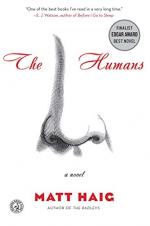
|
| Name: _________________________ | Period: ___________________ |
This test consists of 15 multiple choice questions and 5 short answer questions.
Multiple Choice Questions
1. What does the narrator say he always needed, instead of emotions?
(a) Teamwork.
(b) Strict commands.
(c) Directives from superiors.
(d) Mathematical truth.
2. What does Kierkegaard say a man must pass through, to arrive at the perfection of everything human?
(a) The opposite of perfection.
(b) Otherworldly experiences.
(c) Hellish trials.
(d) Refining visions.
3. How does the narrator try to get Gulliver to kill himself?
(a) By hanging himself.
(b) By taking pills.
(c) By falling down the stairs.
(d) By slitting his wrists.
4. How do the narrator’s hosts characterize human beings?
(a) The simplest of problems.
(b) The least forgivable of criminals.
(c) The shallowest of mysteries.
(d) The most tedious of freedoms.
5. What happens when the narrator reaches out to touch Isobel’s neck and kill her?
(a) Newton growls at him and stops him.
(b) The narrator has a qualm of conscience and stops.
(c) She turns over and says she loves him.
(d) Gulliver bursts in and interrupts.
6. What does the narrator say is the biggest act of bravery or madness a human being can commit?
(a) To move.
(b) To change.
(c) To love.
(d) To grieve.
7. How does the narrator demonstrate his powers to Gulliver?
(a) He shows him how he healed Newton’s pains.
(b) He hypnotizes Gulliver.
(c) He turns a brown leaf green in his hand.
(d) He shows Gulliver the gifts in his left hand.
8. How does Maggie characterize the experience of being human?
(a) Being shown a life you cannot live.
(b) Being given a car you cannot drive.
(c) Being money you cannot spend.
(d) Being told about gods you cannot hear from.
9. What does the narrator say has happened to the Andrew Martin who was afraid of emotion?
(a) That me has been converted.
(b) That me is dead.
(c) That be has been reborn.
(d) That me has been reprogrammed.
10. How far away would the orange need to be, in the narrator's illustration, to represent how far away Vonnadoria would be?
(a) In New Zealand.
(b) In Canada.
(c) In Mercury’s orbit.
(d) In Italy.
11. How does the narrator know that someone has been in the house while he and Isobel slept?
(a) He hears footsteps.
(b) There are fresh footprints in the kitchen.
(c) Newton barks at them.
(d) Isobel’s computer is open.
12. How does the narrator characterize the pleasure he feels while making love with Maggie?
(a) Phosphorescent.
(b) Incandescent.
(c) Spiritual.
(d) Anatomical.
13. What is it that the narrator appreciates about Isobel, as she tends his wounds?
(a) Her soft voice.
(b) Her nose.
(c) Her smell.
(d) Her hair.
14. What does the Vonnadorians’ understanding of prime numbers allow them to do?
(a) Inhabit other worlds.
(b) Invent life forms.
(c) Colonize other planets.
(d) Time travel.
15. Where do the narrator and Maggie go from his office?
(a) To a river bank.
(b) To a pub.
(c) To his house.
(d) To an empty classroom.
Short Answer Questions
1. What is represented by the formula on the student’s t-shirt?
2. What does the narrator hold onto, in the ambulance, when he lets go of everything else in the world?
3. What is the facet of prime numbers that makes them consoling to the narrator?
4. What does Ari compare prime numbers to?
5. Who is Nat?
|
This section contains 552 words (approx. 2 pages at 300 words per page) |

|




